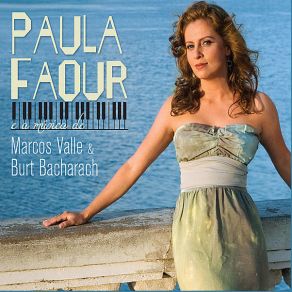Paula Faour
Wikimp3 information about the music of Paula Faour. On our website we have 2 albums of artist Paula Faour. You can find useful information and download songs of this artist.
Biography
[Edit]For several reasons, Paula Faour invites comparisons to the well-known Eliane Elias. Like Elias, Faour is a Brazilian jazz instrumentalist who plays the acoustic piano and electric keyboards — and she obviously shares Elias' strong appreciation of Bill Evans' lyricism. Faour, like Elias, has played both Brazilian and American songs and has combined post-bop pianism with Brazilian rhythms. But Faour is younger than Elias; she was born in the late '70s, whereas Elias was born in 1960. And unlike Elias (who moved to the United States and married trumpeter Randy Brecker), Faour still lives in Brazil. So despite some of the parallels between Faour and Elias, Faour is her own person.
The lyrical, melodic Faour brings a variety of influences to her acoustic piano and electric keyboards — some Brazilian, some American. She has been greatly affected by the Brazilian samba rhythm and by Brazilian artists like Eumir Deodato, Sergio Mendes, Azymuth, and Antonio Carlos Jobim, but she has plenty of American influences as well — not only Bill Evans, but also Keith Jarrett, Herbie Hancock, and Chick Corea (who is no stranger to Brazilian jazz and worked with Flora Purim and Airto Moreira in his first Return to Forever lineup back in the early '70s). Faour tends to be drawn to the more clean-sounding bop and post-bop pianists, and her own pianism definitely has the sort of crystalline sound one associates with Evans and many of the people he influenced (such as Fred Hersch, Alan Broadbent, Lynne Arriale, and Olga Konkova).
Born in Brazil on July 17, 1977, Faour was in her early twenties when, in 1998, she met Arnaldo DeSouteiro, a well-known, very jazz-friendly producer in Brazil (where he has often been described as a South American equivalent of Creed Taylor or Tommy LiPuma). DeSouteiro first heard her performing at a concert that included Hermeto Pascoal and accordionist/guitarist Sivuca, who soon hired her as a regular member of his band. Impressed with Faour's playing, DeSouteiro recommended her to his wife, Ithamara Koorax (a well-known singer in Brazil), and veteran drummer Dom Um Romão (who commands the sort of respect in Brazilian music that Tito Puente, Mongo Santamaria, and Ray Barretto have enjoyed in the Afro-Cuban field). In 1999, Romão hired Faour to play with his band, and she ended up touring extensively with the famous drummer and playing on a few of his albums. The early 2000s found Faour appearing on albums by the Brazil All-Stars and Pingarilho. During the summer of 2002, DeSouteiro entered a Rio de Janeiro studio with Faour and produced her first album as a leader, Cool Bossa Struttin', for his own label, Jazz Station Records; primarily an acoustic trio date, the album employs Romão on drums and Brazilian jazz veteran Manuel Gusmão on acoustic bass.

